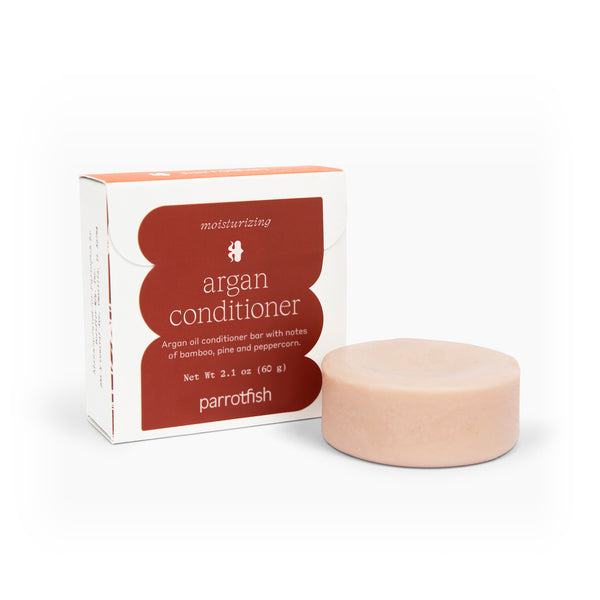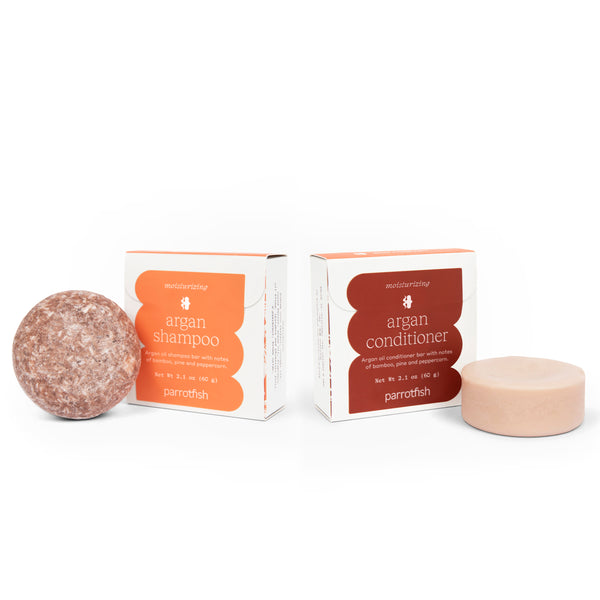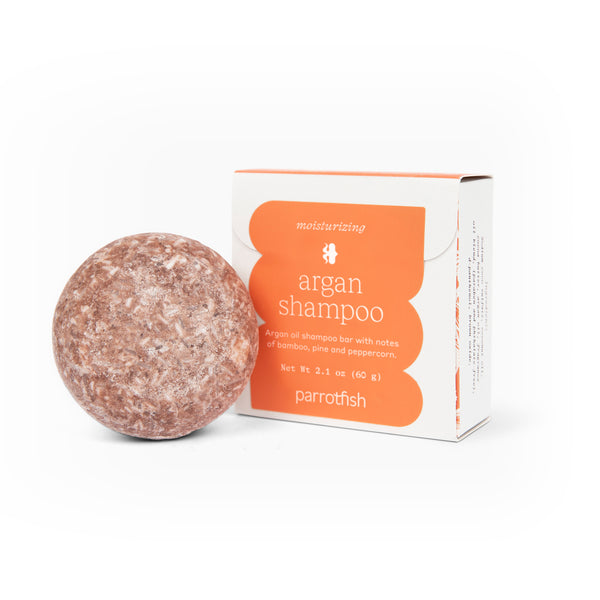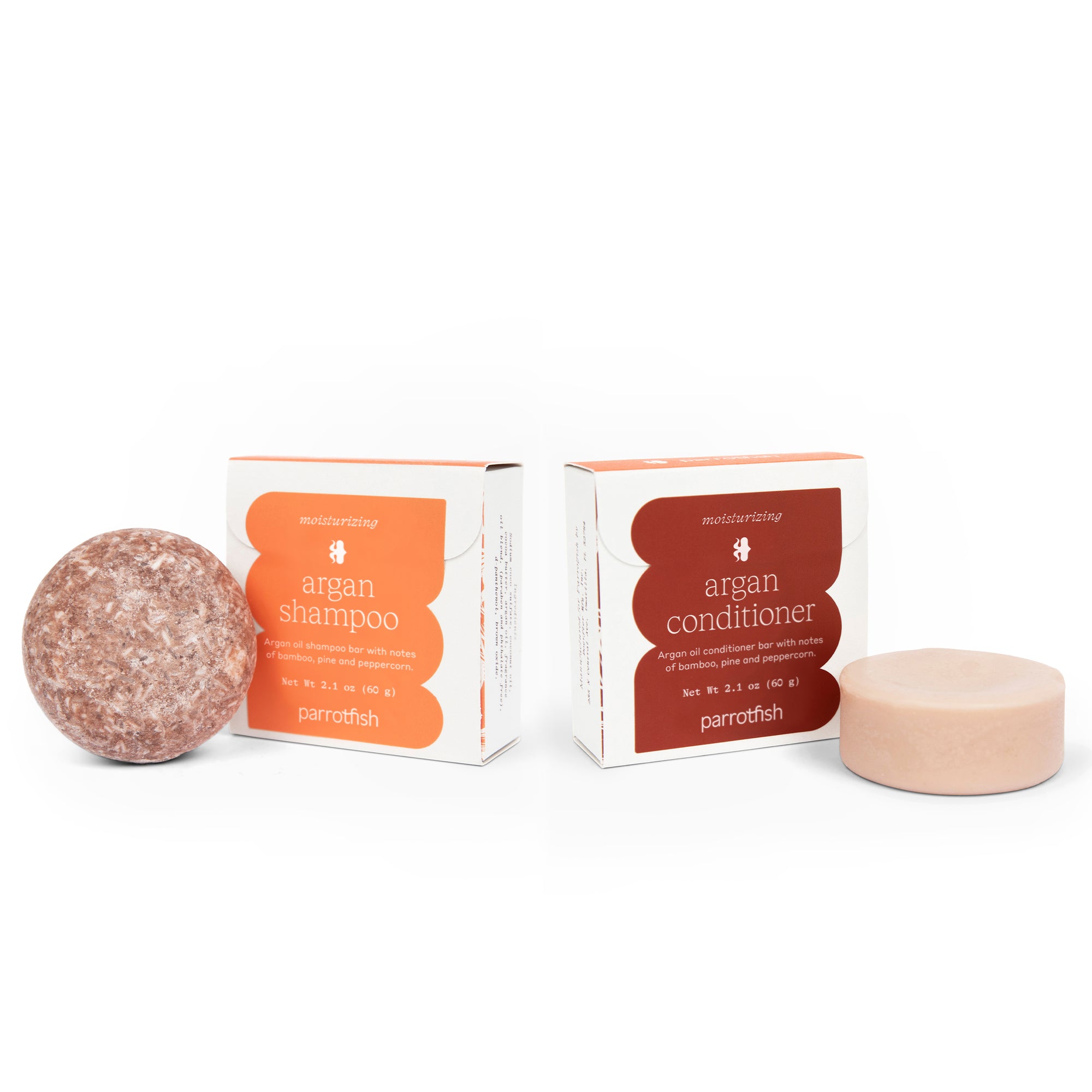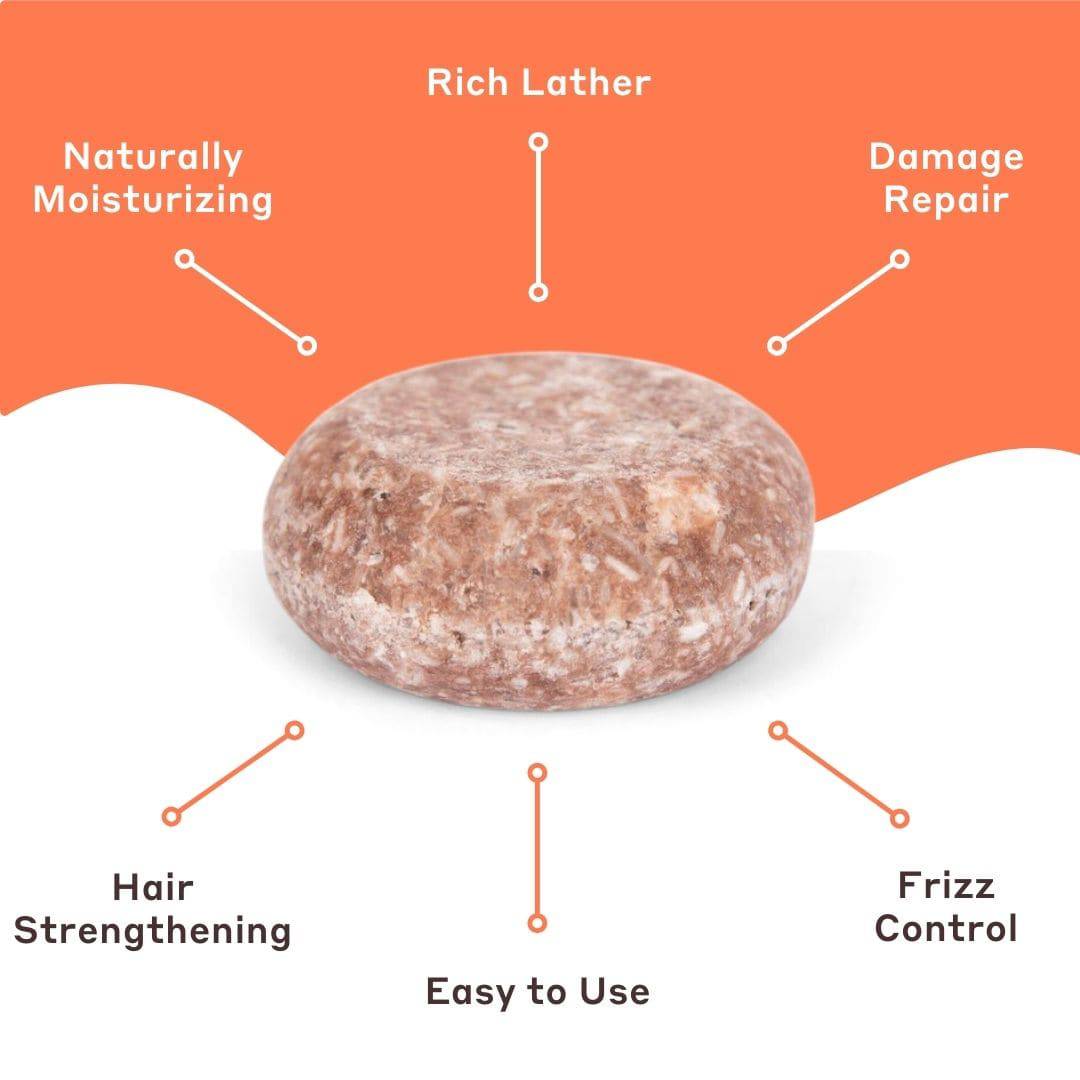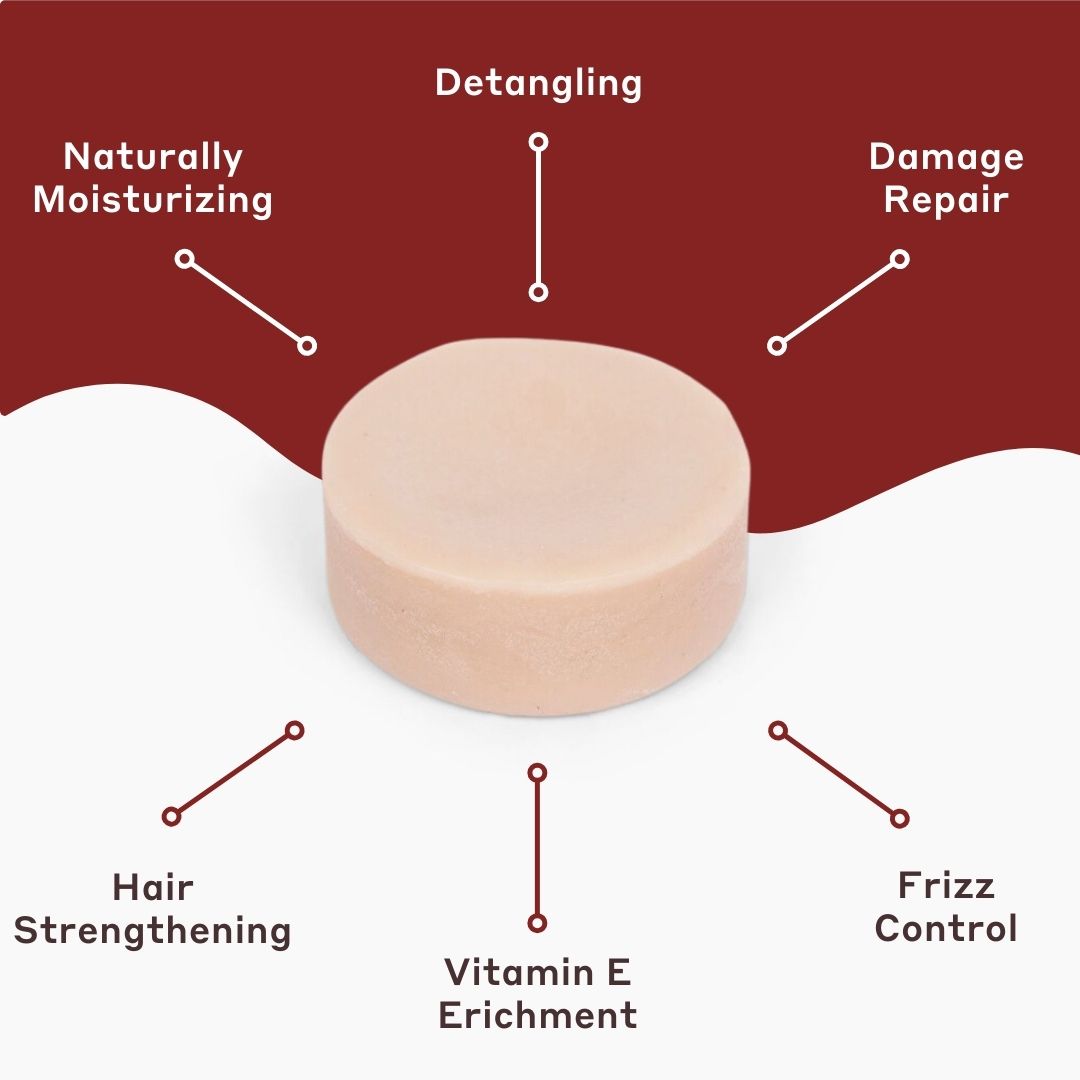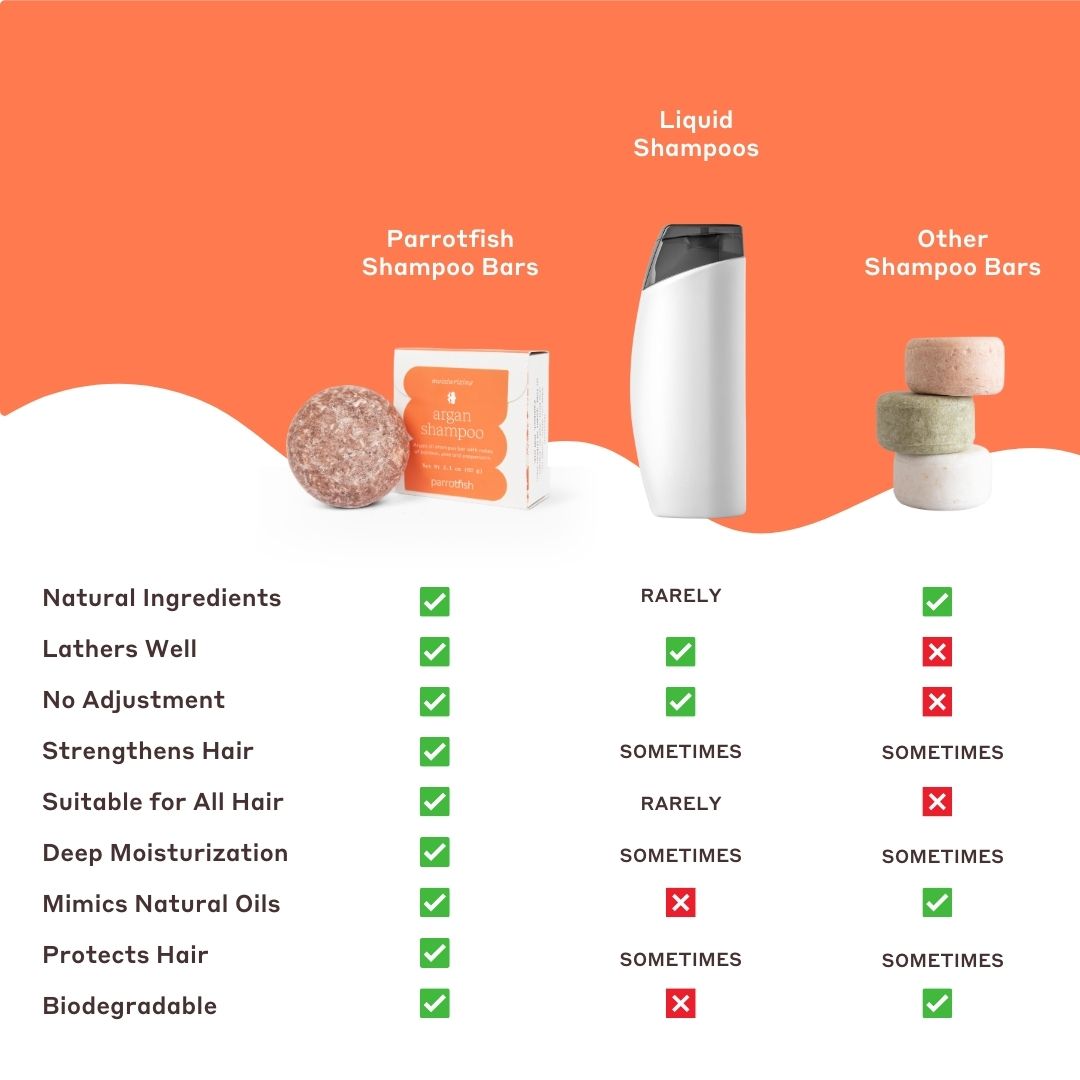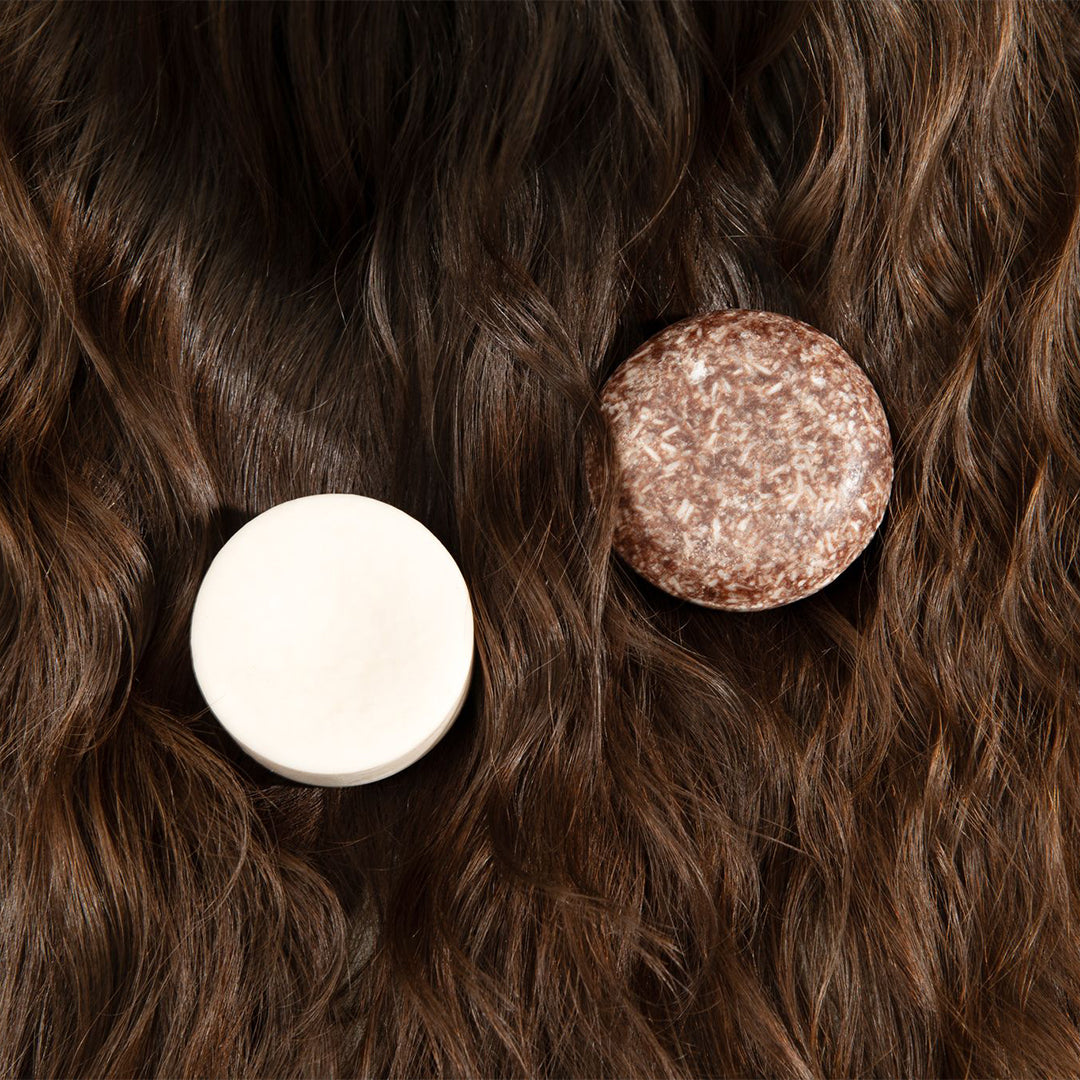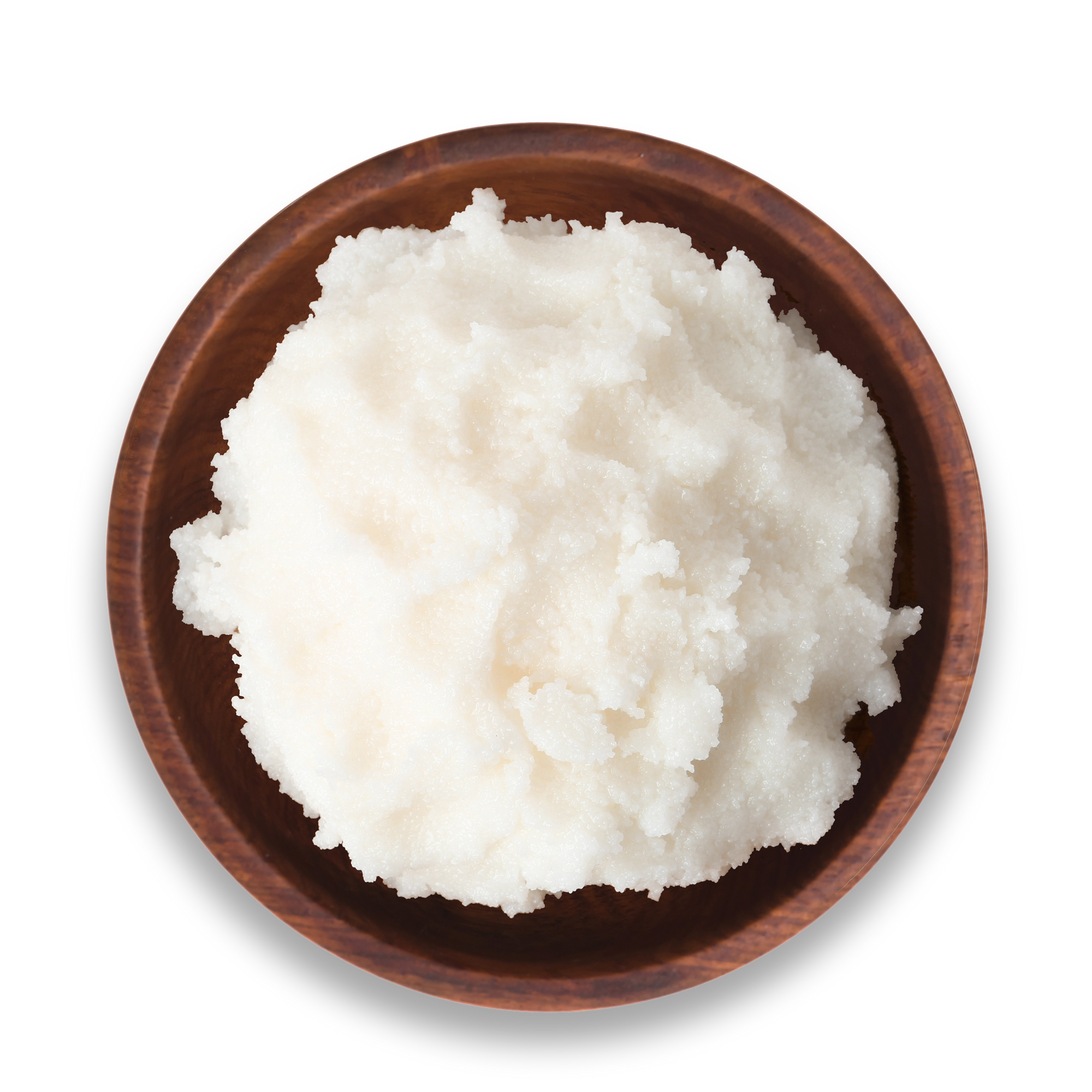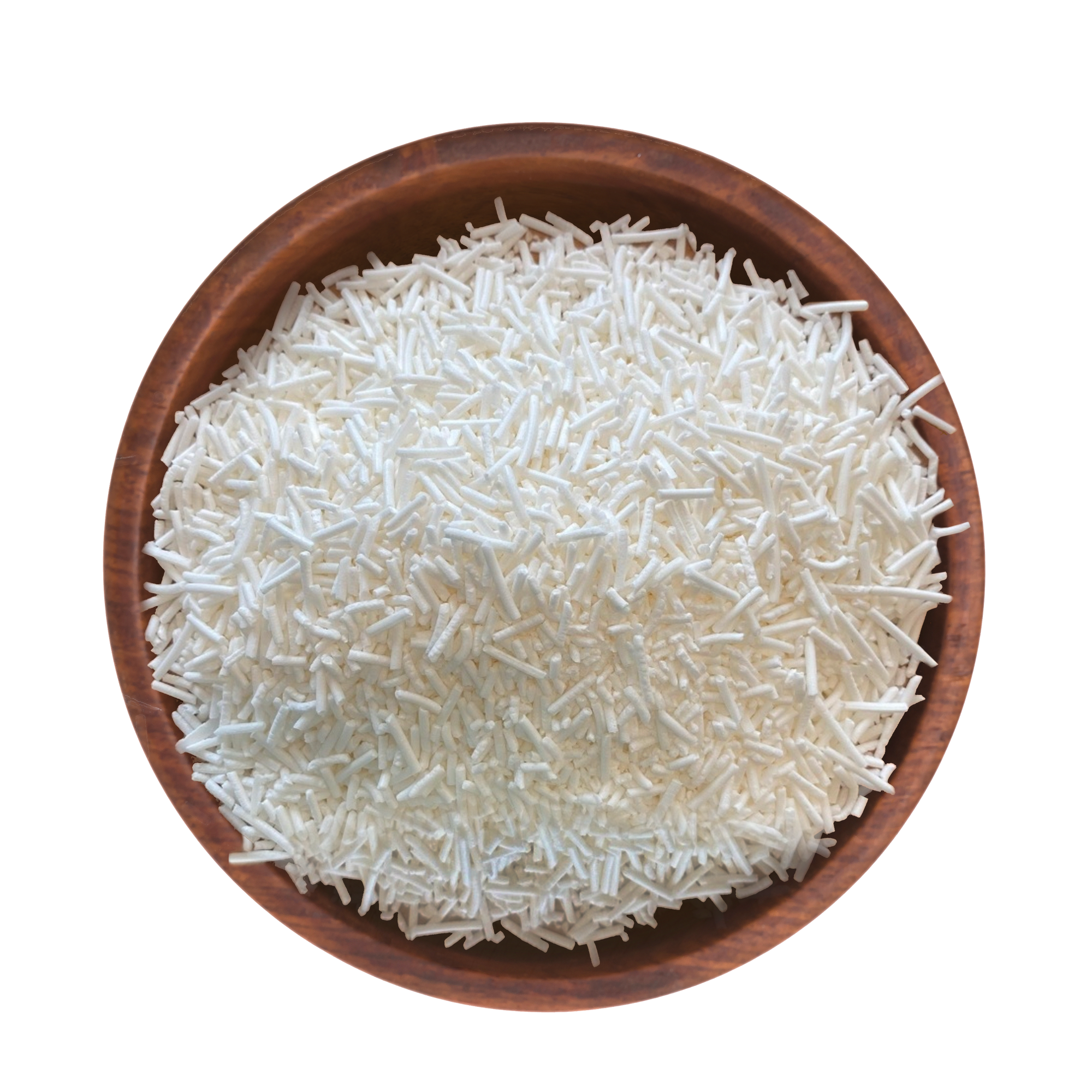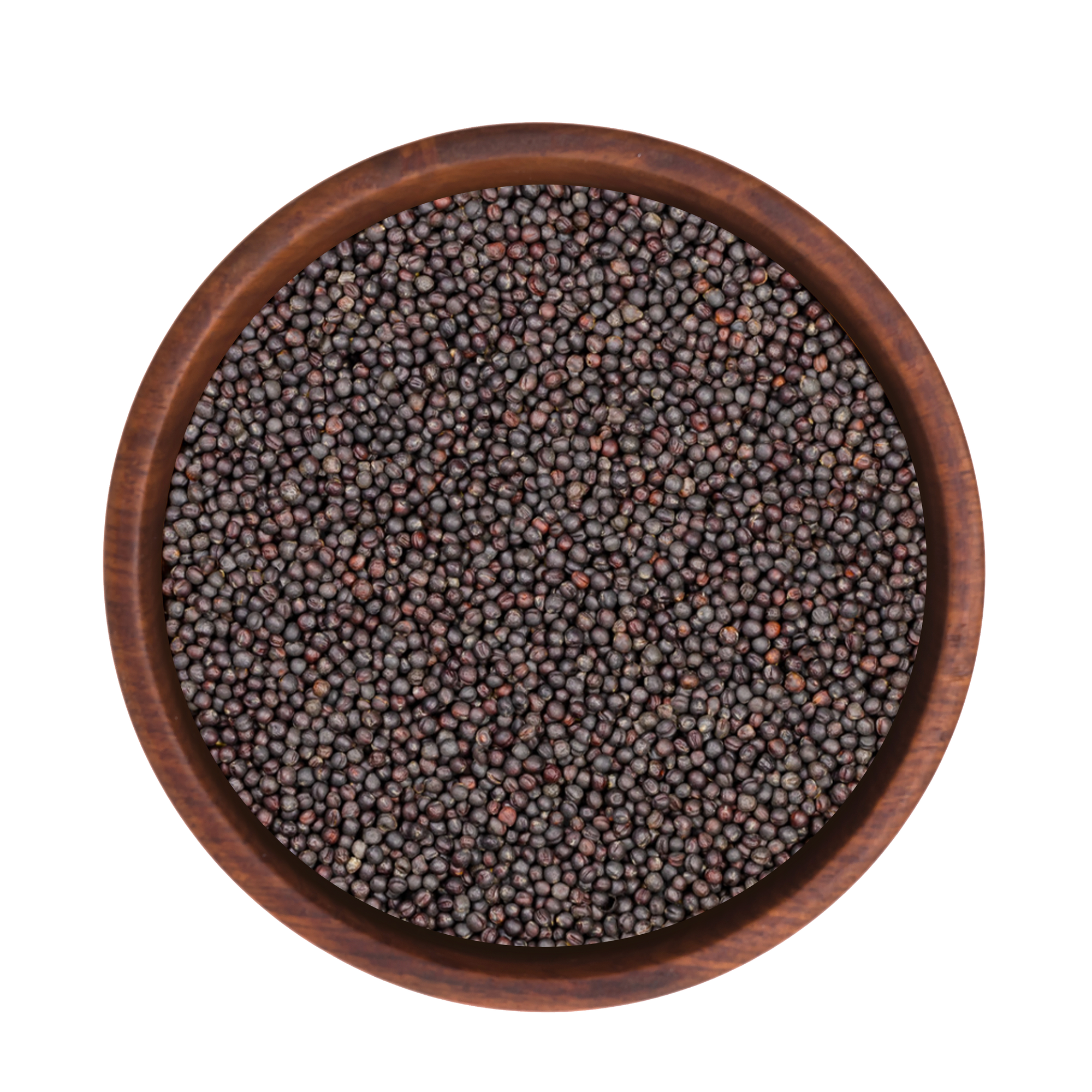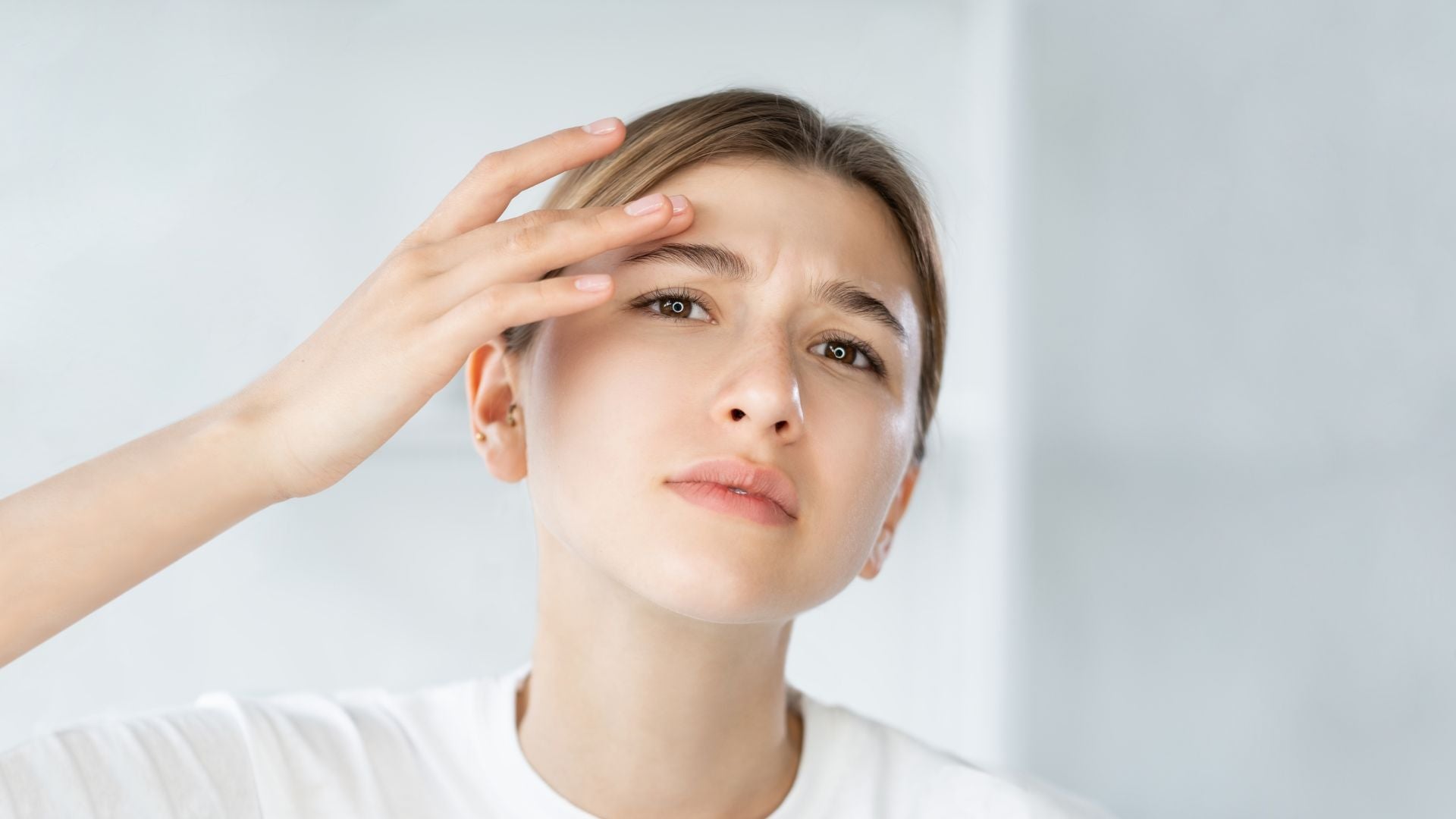

Special Offer Just for You!
Thanks for reading our blog! As a token of appreciation, enjoy 10% off your next purchase with code BLOG10.
Curious about how our products work in real life? Check out what our customers are saying about their favorite shampoo bars and soap collections. Join the Parrotfish family and see why they love us!





Description
Moisturizing argan oil shampoo bar with notes of bamboo, pine and peppercorn.
Elevate your hair care routine with Parrotfish's Hair Care Bundle, where you get to select your ideal argan shampoo and conditioner combination. This bundle offers an exceptional eco-friendly, luxurious hair care experience, allowing you to tailor your routine to your unique hair needs.
Argan Shampoo & Conditioner: Nourishing and moisturizing with the goodness of argan oil.
Parrotfish's argan oil shampoo bars gently cleanse and nourish your hair without harsh chemicals, leaving it clean, soft, and revitalized. Our argan oil conditioner bars complement your shampoo choice, providing the perfect finishing touch for smooth, manageable locks.
Experience the power of nature with our sustainable hair care solutions. Parrotfish is committed to eco-friendly practices, so you can enjoy beautiful hair while reducing your environmental footprint.
- Buy the argan oil shampoo on its own
- Buy the argan oil conditioner on its own
Shop all shampoo and conditioner bars.
Learn about the benefits of Argan Oil and what Argan Oil does for hair.
Scent Profile
Indulge your senses in a symphony of exotic spices interwoven with the freshness of a bamboo forest.
Picture yourself amidst the intrigue of a bustling Moroccan spice market, the air thick with the aroma of freshly cracked peppercorn mingling with the subtle sweetness of bamboo shoots. Yet, it's not just the spices that command attention; there's a hint of musk weaving through, adding an air of masculinity and mystery. It's like embarking on a wilderness adventure, where every step is infused with the scent of untamed nature and every wash leaves you feeling invigorated and empowered.
Ingredients
Sodium coco sulfate, coconut oil, cocoa butter, argan oil, fragrance oil blend (paraben and phthalate-free), d-panthenol, brown oxide.
2.1 oz. (60 g)
Our bars are created with Sodium Coco Sulfate, a lathering agent that makes the shampoo sudsy. It is milder than Ammonium Lauryl Sulfate, Sodium Laureth Sulfate, or Sodium Lauryl Sulfate because it is derived from coconuts, not petroleum. Environmental Working Group's (EWG) certification for surfactants, Sodium Coco Sulfate, is rated a "1," the highest safety rating. Your hair is getting the best of both worlds because it effectively dissolves dirt and grease, but more gently, it is safe for colored hair, and you still get the sudsy lather we are all accustomed to. This helps the transition period from liquid to bar seamless.
How to Use
Utilizing an argan shampoo bar comes with a straightforward yet effective method: either directly apply the damp bar onto your hair or create a lather in your palms first. Then, with care, work the shampoo bar through your scalp and hair, mimicking the application process of traditional liquid shampoos.
Each argan oil shampoo bar is meticulously encased in a bamboo holder for its protection during transit. It's crucial to remember, however, that this bamboo holder is not designed to serve as a soap dish. For the preservation and extended use of your shampoo bar, investing in an appropriate soap dish is vital. An ideal soap dish should raise the bar off its surface, allowing for proper air circulation and the draining away of any residual water. By adopting this practice, you can significantly enhance the durability of your argan oil shampoo bar, with it lasting anywhere between four to six months.

